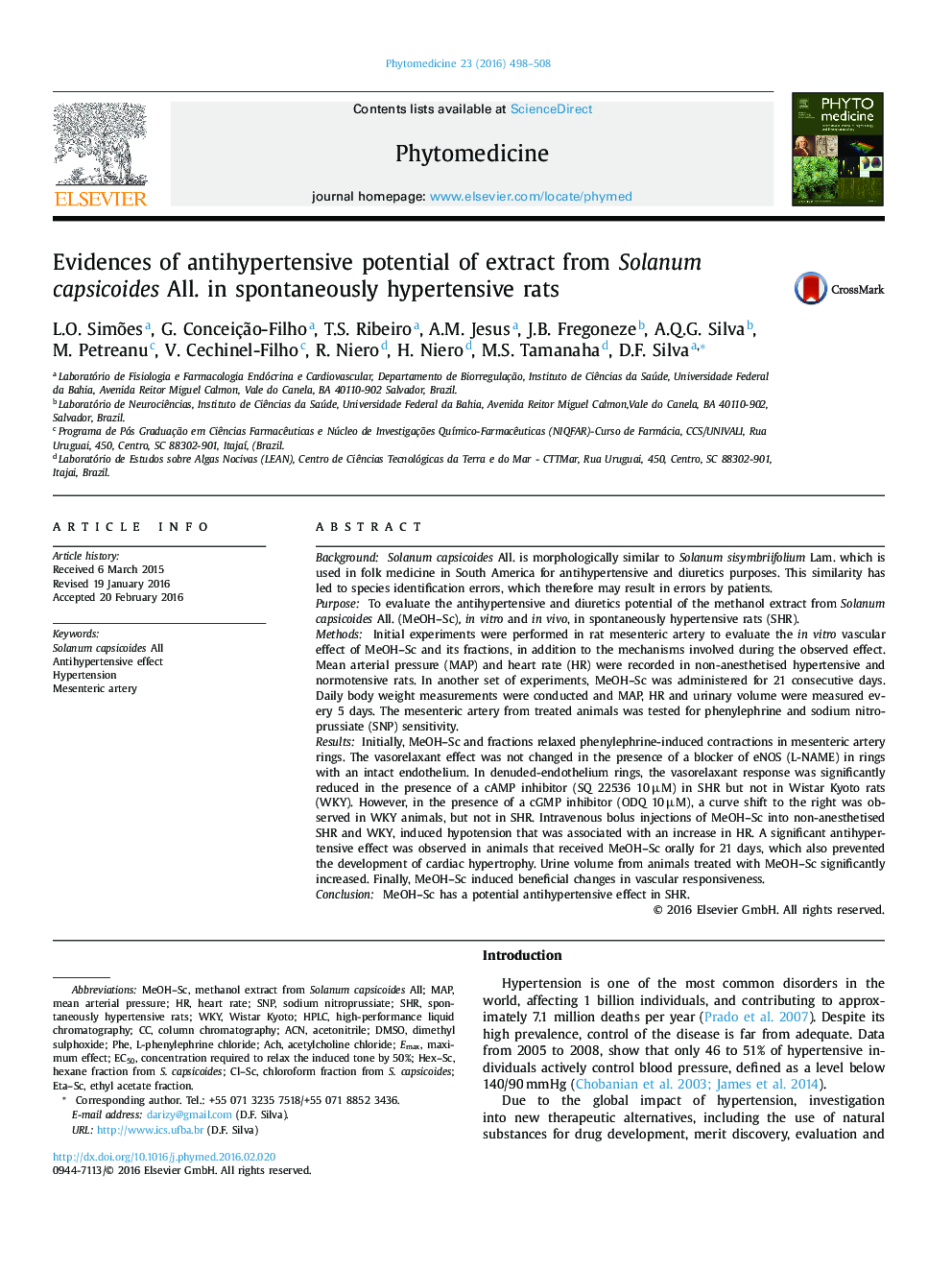| Article ID | Journal | Published Year | Pages | File Type |
|---|---|---|---|---|
| 2496266 | Phytomedicine | 2016 | 11 Pages |
BackgroundSolanum capsicoides All. is morphologically similar to Solanum sisymbriifolium Lam. which is used in folk medicine in South America for antihypertensive and diuretics purposes. This similarity has led to species identification errors, which therefore may result in errors by patients.PurposeTo evaluate the antihypertensive and diuretics potential of the methanol extract from Solanum capsicoides All. (MeOH–Sc), in vitro and in vivo, in spontaneously hypertensive rats (SHR).MethodsInitial experiments were performed in rat mesenteric artery to evaluate the in vitro vascular effect of MeOH–Sc and its fractions, in addition to the mechanisms involved during the observed effect. Mean arterial pressure (MAP) and heart rate (HR) were recorded in non-anesthetised hypertensive and normotensive rats. In another set of experiments, MeOH–Sc was administered for 21 consecutive days. Daily body weight measurements were conducted and MAP, HR and urinary volume were measured every 5 days. The mesenteric artery from treated animals was tested for phenylephrine and sodium nitroprussiate (SNP) sensitivity.ResultsInitially, MeOH–Sc and fractions relaxed phenylephrine-induced contractions in mesenteric artery rings. The vasorelaxant effect was not changed in the presence of a blocker of eNOS (L-NAME) in rings with an intact endothelium. In denuded-endothelium rings, the vasorelaxant response was significantly reduced in the presence of a cAMP inhibitor (SQ 22536 10 µM) in SHR but not in Wistar Kyoto rats (WKY). However, in the presence of a cGMP inhibitor (ODQ 10 µM), a curve shift to the right was observed in WKY animals, but not in SHR. Intravenous bolus injections of MeOH–Sc into non-anesthetised SHR and WKY, induced hypotension that was associated with an increase in HR. A significant antihypertensive effect was observed in animals that received MeOH–Sc orally for 21 days, which also prevented the development of cardiac hypertrophy. Urine volume from animals treated with MeOH–Sc significantly increased. Finally, MeOH–Sc induced beneficial changes in vascular responsiveness.ConclusionMeOH–Sc has a potential antihypertensive effect in SHR.
Graphical abstractFigure optionsDownload full-size imageDownload high-quality image (132 K)Download as PowerPoint slide
